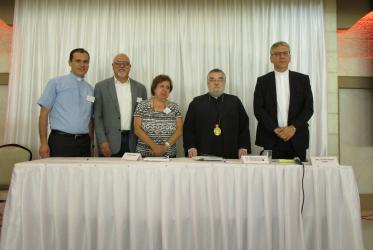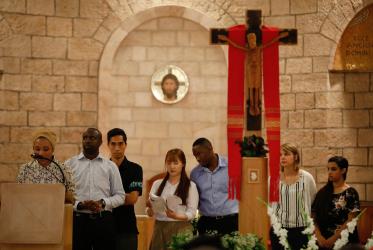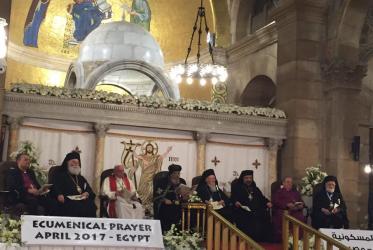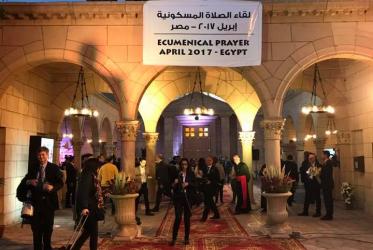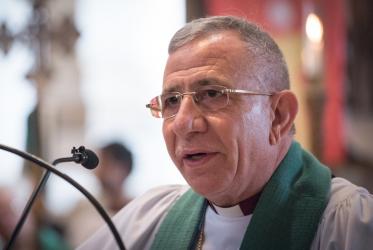Displaying 41 - 60 of 91
29 December 2017
WCC Executive Committee emphasize peace, justice and unity
19 November 2017
Pentecost is time to pray for unity and just peace
05 June 2017
WCC condemns attack in Egypt
26 May 2017
Historic ecumenical prayer in Egypt for peace and unity
30 April 2017
Holy work for the Holy Land
29 March 2017
In Lebanon, refugees face hardship - but find hope
16 March 2017
Bishop Younan awarded Niwano Peace Prize
22 February 2017
“There are no strangers here” – Saint Irenaeus a key to unity?
19 December 2016
Owe Boersma will strive for equilibrium as EAPPI coordinator
18 August 2016



